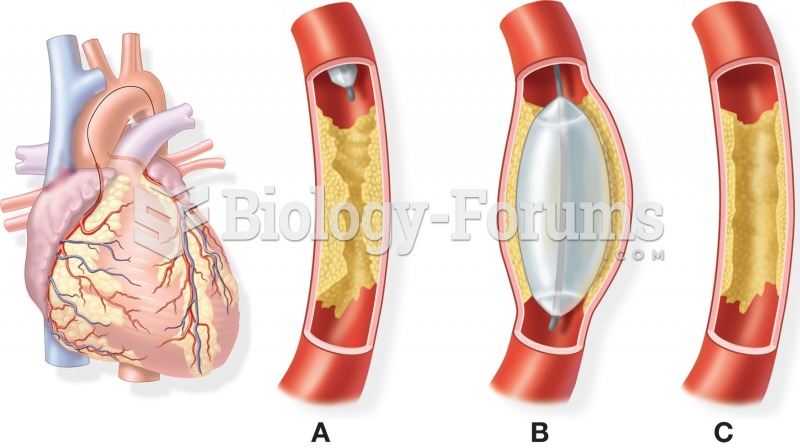|
|
|
In 1835 it was discovered that a disease of silkworms known as muscardine could be transferred from one silkworm to another, and was caused by a fungus.
Green tea is able to stop the scent of garlic or onion from causing bad breath.
Disorders that may affect pharmacodynamics include genetic mutations, malnutrition, thyrotoxicosis, myasthenia gravis, Parkinson's disease, and certain forms of insulin-resistant diabetes mellitus.
If you use artificial sweeteners, such as cyclamates, your eyes may be more sensitive to light. Other factors that will make your eyes more sensitive to light include use of antibiotics, oral contraceptives, hypertension medications, diuretics, and antidiabetic medications.
Elderly adults are at greatest risk of stroke and myocardial infarction and have the most to gain from prophylaxis. Patients ages 60 to 80 years with blood pressures above 160/90 mm Hg should benefit from antihypertensive treatment.
 Balloon angioplasty: (A) deflated balloon catheter is approaching an atherosclerotic plaque; (B) pla
Balloon angioplasty: (A) deflated balloon catheter is approaching an atherosclerotic plaque; (B) pla
 Vapocoolant spray application while passively stretching the paracervical muscles. Take care to prot
Vapocoolant spray application while passively stretching the paracervical muscles. Take care to prot
 An engine in good mechanical condition should produce 17 to 21 inches Hg of vacuum at idle at sea ...
An engine in good mechanical condition should produce 17 to 21 inches Hg of vacuum at idle at sea ...
 If the needle drops 1 or 2 inches Hg from the normal reading, one of the engine valves is burned or ...
If the needle drops 1 or 2 inches Hg from the normal reading, one of the engine valves is burned or ...



